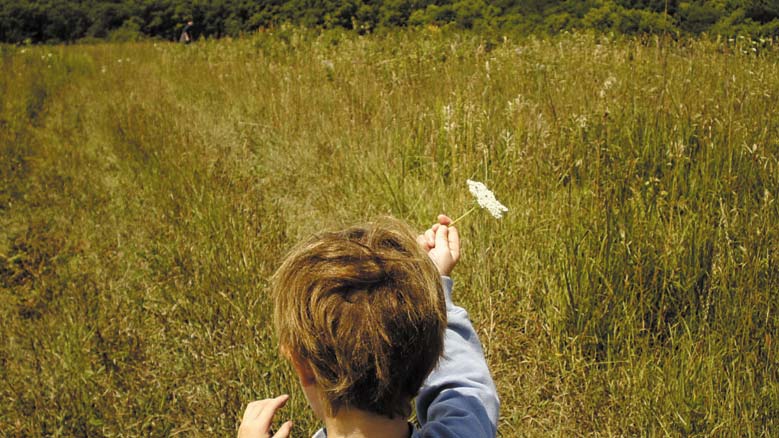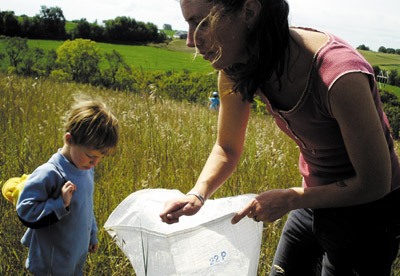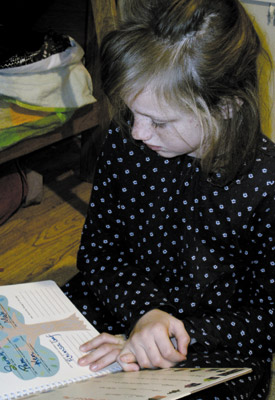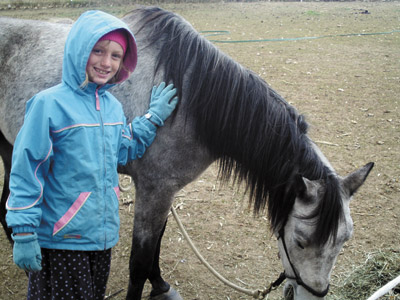
I recently read an article excerpted from a book by John Taylor Gatto, a leading thinker in progressive education, in which he asserts that Quakers were instrumental in the rigidity of public schools as we now know them. In The Underground History of American Education, he expounds on “Lancaster schools,” which are named for their creator, Joseph Lancaster. Lancaster was a British Friend who, when he was 20 years old, read a pamphlet by Anglican missionary Andrew Bell on the caste-preserving Hindu school system in India. In this pamphlet, Bell “praised Hindu drill as an effective impediment to learning writing and ciphering, an efficient control on reading development.” Lancaster, after reading Bell’s account, “concluded, ironically, it would be a cheap way to awaken intellect in the lower classes, ignoring the Anglican’s observation (and Hindu experience) that it did just the opposite.” He eventually brought a version of the system to America (the first Lancaster school opened in New York City in 1806). Gatto describes what resulted:
What exactly was a “Lancaster” school? Its essential features involved one large room stuffed with anywhere from three hundred to a thousand children under the direction of a single teacher. The children were seated in rows. The teacher was not there to teach but to be “a bystander and inspector”. . . Here, without forcing the matter, is our modern pedagogus technologicus, harbinger of future computerized instruction. In such a system, teachers and administrators are forbidden to depart from instructions elsewhere written.
This unfortunate connection to Friends was news to me, yet not surprising. I am aware of well-intentioned mistakes of Quaker past—solitary confinement still haunts us with its perverted outcome. Yet, I want to speak back to the article to articulate how importantly our Quaker faith does inform our educational choices, though so differently from the example Gatto painted. I am a huge admirer of Gatto’s work within and outside of the educational system, but I sense the need to provide a contemporary portrait of one Quaker family’s approach to education.
 Our family unschools—a broad and, frankly, nondescriptive term, as each unschooling family has its own definition of the concept. For our family, I describe the experience as life-learning. For the more intimate community of Friends, I would describe it as following our own Light-filled leadings. While we do own some workbooks and textbooks, we do not “school at home.” Instead, we all, ages three to thirty-three, learn primarily from lessons innate to the human experience.
Our family unschools—a broad and, frankly, nondescriptive term, as each unschooling family has its own definition of the concept. For our family, I describe the experience as life-learning. For the more intimate community of Friends, I would describe it as following our own Light-filled leadings. While we do own some workbooks and textbooks, we do not “school at home.” Instead, we all, ages three to thirty-three, learn primarily from lessons innate to the human experience.
I did not come to this schooling decision passively. I am a trained educator with a degree in special education, and what I see (though I don’t believe it takes an inside eye to realize this) is that the U.S. public school system—on a whole—does not honor the individual and bright shining light that is in each and every child. Increasingly, the foundation to any classroom’s curriculum is based on the common core and standardized testing. My personal teacher training rarely addressed how a teacher should interact with a student, and instead mostly aimed to certify teachers in proctoring standardized tests, to instruct on how to write “Individual Educational Plans,” and to warn of behavior that could lead to being audited or sued as a public school educator. I was truly disappointed in how uninspiring the whole process was.
 For most homeschooling families, having a great amount of time together as a family is a major factor leading to the decision to educate from home. Both my husband and I work flexible and self-directed jobs so one of us is always with the children. And the children are usually together, either as playmates or with the elder as a teacher for the younger. Our typical day follows a loose format. We wake gently, not shocked to life by an alarm, no frantic scurry to catch a bus. We may cuddle in bed before making muffins or scrambled eggs for breakfast. After the meal, we clear the table and do “book work.” This period of time varies by the day; some days the kids dive into their math and language art workbooks, and other days we enjoy a wide variety of activities, such as writing letters, making a huge family-tree poster, scrapbooking, and creating Venn diagrams.
For most homeschooling families, having a great amount of time together as a family is a major factor leading to the decision to educate from home. Both my husband and I work flexible and self-directed jobs so one of us is always with the children. And the children are usually together, either as playmates or with the elder as a teacher for the younger. Our typical day follows a loose format. We wake gently, not shocked to life by an alarm, no frantic scurry to catch a bus. We may cuddle in bed before making muffins or scrambled eggs for breakfast. After the meal, we clear the table and do “book work.” This period of time varies by the day; some days the kids dive into their math and language art workbooks, and other days we enjoy a wide variety of activities, such as writing letters, making a huge family-tree poster, scrapbooking, and creating Venn diagrams.
As the supposed “teacher” in this scene, I try to take a backseat position to my children’s exploration. John Holt explains this concept in his seminal book, How Children Fail (first published in the 1960s):
It is not the teacher’s proper task to be constantly testing and checking the understanding of the learner. That’s the learner’s task, and only the learner can do it. The teacher’s job is to answer questions when learners ask them, or to try to help learners understand better when they ask for that help.
From this explanation, I’m reminded of our Quaker understanding that clergy are unnecessary. Both learning and listening to God are intensely personal journeys. While we can guide and support each other through these processes, we cannot coerce.
The remainder of the morning is spent playing and doing chores until lunch. After lunch, we have “Chapter a Day” (the idea lifted from Wisconsin Public Radio’s classic radio program in which various hosts read one chapter from a book each day). This year we are reading historical narratives of children, including Caddie Woodlawn by Carol Ryrie Brink, Anne of Green Gables by Lucy Maud Montgomery, and the Little House series by Laura Ingalls Wilder. The rest of the afternoon is spent on a family project, such as working in our large garden or stacking wood for our fireplace. We might also be found in our sewing room making Renaissance Faire costumes or in the kitchen baking an experimental recipe. Like the adults in our family, the kids learn as they go. Recently, we tore up carpeting and laid down a hardwood floor, a new experience for all of us, figuring it out along the way. The kids were by our side each moment, pulling staples, sweeping messes, listening to audio books.
My own experiences going to public school were strangely devoid of social responsibility, a core piece of our Quaker beliefs. In my college years, I had the strange and sudden clearness that I had not been pulling my social weight—that my inward beliefs were not being demonstrated in my outward actions. In our homeschooling process, we can directly address this important connection. Our children participate in a variety of volunteer opportunities, such as collecting native prairie seeds for distribution and attending a monthly quilting bee where we make “comforts” for mission work. We have flexibility to visit elderly family members and a more open calendar to exercise our citizenship at political rallies in our nearby state capitol.
 We’ve also been able to take many off-season camping and field trips, such as ten days spent on Lake Superior learning about the SS Edmund Fitzgerald shipwreck and tasting different local fish. We’ve attended a bluegrass festival, visited one-room school houses, toured a maple syrup sugar shack, and made homemade soap with another homeschooling family. Contrary to popular myth that homeschooling makes for unsocialized children, the children are socializing with a wide variety of people all day long! I find interacting with a multigenerational community to be much more normal and healthy than being in a room with only one’s immediate peers.
We’ve also been able to take many off-season camping and field trips, such as ten days spent on Lake Superior learning about the SS Edmund Fitzgerald shipwreck and tasting different local fish. We’ve attended a bluegrass festival, visited one-room school houses, toured a maple syrup sugar shack, and made homemade soap with another homeschooling family. Contrary to popular myth that homeschooling makes for unsocialized children, the children are socializing with a wide variety of people all day long! I find interacting with a multigenerational community to be much more normal and healthy than being in a room with only one’s immediate peers.
Homeschooling also keeps us close to God’s creation. I know how difficult it would be for me to stay confined to an artificially lit room for seven hours a day—I sympathize with antsy school children everywhere! Inflicting boredom on others, too, is a kind of violence. A good part of our day is spent outside, rain or shine. Following Starhawk’s advice—“Life, being sacred, demands our full attention”—we pay attention. The children are aware of migrating birds, of a butterfly’s diet, and they always have a few beloved frogs or fireflies in their collection. We’ve also been fortunate enough to learn horseback riding with our homeschooling friends and have even been witness to a deer butchering.
Our children recently set up a lemonade stand at the local farmers’ market. As they made change for a neighbor’s dollar, she, in kind concern, asked me how we plan to address math. I had to stifle my giggle when I replied, “They are doing it right now!” Learning in this unschooling way illuminates for me that all of us are in a life-long process of growing. As the great poet Rainer Maria Rilke wrote in Letters to a Young Poet, “Resolve to be always beginning—to be a beginner!” In this way, we are open to the constant revelation of both our hearts and our minds.



Seres Kyrie has an excellent way of teaching her children. All can learn as they grow. Both of my sons started in a public school system and later converted to online education to actually learn. My friends Tony and Jeanette Maurer taught their two children at home until it was felt the youngest needed to be in the junior high with my oldest. Each child has an inner light to be considered in the education received.
I do agree with Seres Kyrie view of many of our public school systems. The standardizing of our students nationally through Industrial Education examinations is not appropriate in teaching. Hopefully, a Holistic or Quaker Educational view can expand in our global systems. This would look at each pupil’s need as opposed to forcing individuals into a preexisting industrial economic conformity for each Life. As the global economy continually changes, our educational organizations must alter themselves in preparing our children to live their genuine Life(s) and possibly save our planet.
While I respect decisions that individual families make regarding their children’s education, the decision to pull your child out of public school or send your child to a private school is a personal decision, not a Quaker response to concerns about public education. Most families do not have the luxury of having both parents available to un-school or home school full-time, to purchase curricular resources or to take ten-day-long field trips. At least one of those parents and in many cases, both parents, are working jobs with traditional hours and responsibilities. Public education, a system that provides a structure compatible with many working families, educates most of the children in the United States, despite its perceived flaws.
I say “perceived” because I challenge Friends to conduct an honest assessment of one’s local school district rather than simply accepting talking points or making assumptions about the state of public education. As school districts across the country move toward methods of more individualized instruction, they’re moving away from the “skill and drill” methods of instruction many of us may have experienced as children and are providing students with real world problem-solving that incorporates technology, group work and access to global learning experiences that are difficult to replicate in a home school setting.
While assessment testing often gets a bad rap, those benchmarks provide information for school districts to make data-driven decision-making regarding how to better deploy resources in a manner that closes achievement gaps for students. The country’s public schools as a whole have improved dramatically over the past 30 years both in terms of methodology as well as outcomes and it is our responsibility as Friends to continue to support this critical component of our democracy.
Rather than decrying the system as broken and choosing not to participate, what are Friends doing to improve the system and the lives of children attending local public schools? Are meetings adopting local public schools to provide material and volunteer resources to supplement limited local and state funding sources? Are Friends providing tutoring services or filling backpacks for children whose parents can’t afford to?
During the eight years I served on my local school board, I worked to not only implement curricular and personnel changes that helped to improve student achievement but made decisions that honor the dignity of students and staff, including fair contract negotiations, disciplinary decisions and policy changes to our anti-discrimination, bullying, environmental and sexual harassment policies, to name a few. Working in or volunteering for a public school is an opportunity to bear witness to our Quaker testimony of seeing that of God in everyone, regardless of income, learning ability, or political or religious affiliation. There is important work to be done in our public schools and the system would benefit from having more Friends working within that system to improve it rather than simply choosing not to be a part of it.
Is it an either/or question? I think it’s not that simple. There are lots of ways to support public education. Not all of them require putting one’s children through it. As parents we have the individual child’s needs to consider and to meet the best way we can. As community members we have a different set of possible roles, including school board member. It’s the one-size-fits-all approach that is in error. Friends are more creative than that!
[…] Quakers and Unschooling […]
I am reading Gatto’s book now (which is how I found your blog), but in searching for evidence that Andrew Bell wanted to create an education system that was an “impediment” to learning and writing (as Gatto claims), I haven’t found any. Gatto doesn’t provide footnotes to substantiate his claim, and in skimming over Andrew Bell’s own writings, Gatto’s claim doesn’t seem to have any clear foundation.
[…] Quakers and Unschooling Homeschooling also keeps us close to God’s creation. I know how difficult it would be for me to stay confined to an artificially lit room for seven hours a day—I sympathize with antsy school children everywhere! Inflicting boredom on others, too, is a kind of violence. Seres Kyrie lives with her partner and two children in southwest Wisconsin where they homeschool, make music, and cook delicious food. […]
I’m surprised to have found so few resources available for Quaker homeschooling, so I cherish this singular article- thank you! As an attender hoping to become a member of a local meeting soon, and as a homeschooling parent not oblivious to our family’s privilege to make this choice for our children, I would welcome more Quakerly resources. We can work for prison reform without having a loved one on the inside. Likewise with the education system. And not every Friend is called to pursue the same cause. I hope to find more openness to God’s leading in this area of life at my future meeting. Thank you again for writing this!